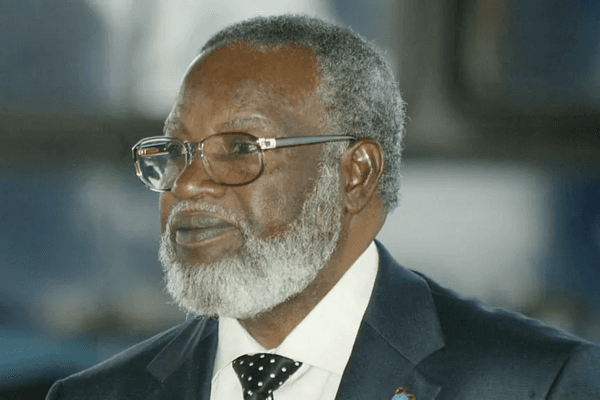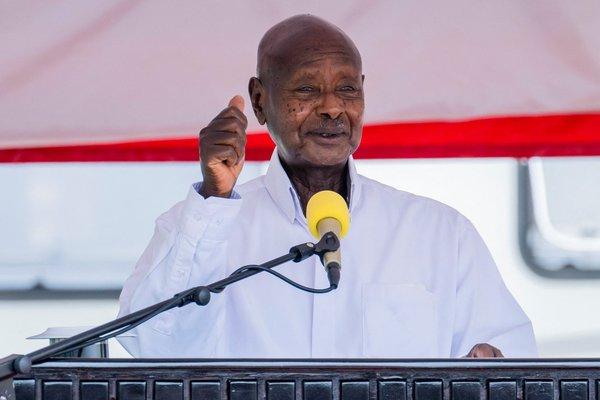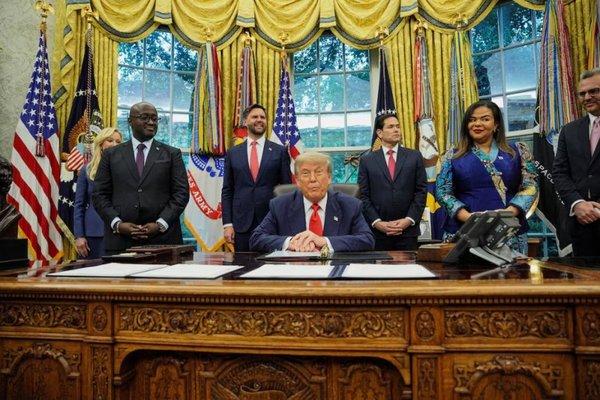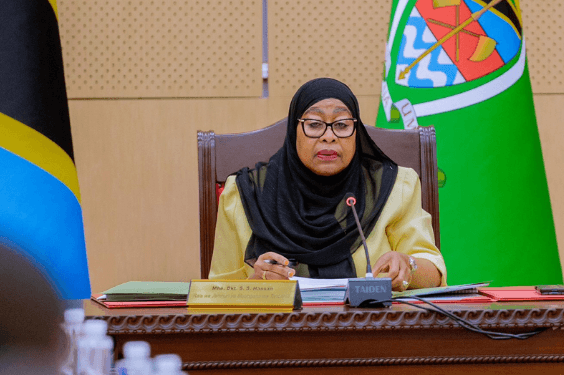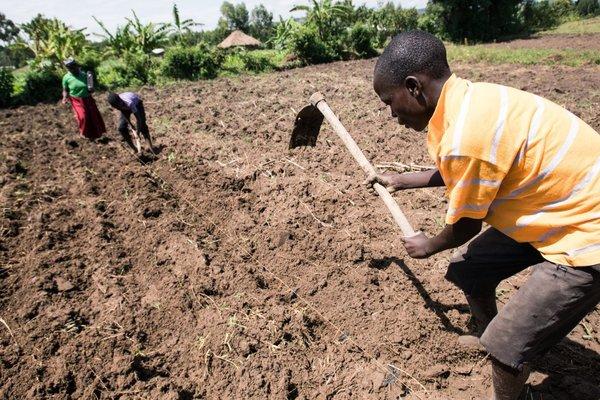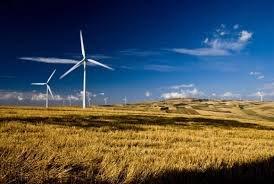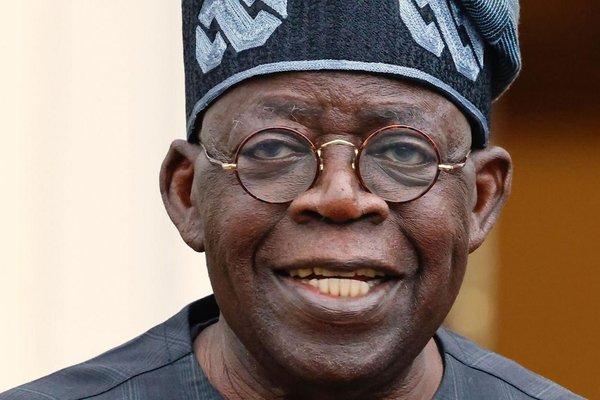Nigeria
Nigeria is a country in West Africa and is considered the most populous nation on the continent, and the 7th most populous in the world, with over 200 million people. It is known for its rich history, diverse cultures, and vast natural resources, particularly oil and gas.

West Africa

923,768 sq km

GMT+01:00

220 million(2025)

Pidgin English, English, Yoruba

Islam, Christianity

Nigerian Naira(NGN)

Bola Ahmed Tinubu
Brief
Nigeria, an African country on the Gulf of Guinea, has many natural landmarks and wildlife reserves. Protected areas such as Cross River National Park and Yankari National Park have waterfalls, dense rainforest, savanna and rare primate habitats. One of the most recognizable sites is Zuma Rock, a 725m-tall monolith outside the capital of Abuja that’s pictured on the national currency. Ancient Kingdoms: Nigeria's history dates back to ancient kingdoms such as Nok, Benin, Oyo, and Kanem-Bornu. The Nok culture, around 1000 BCE to 300 AD, is particularly known for its terracotta sculptures.
Islamic Influence: Islam entered Nigeria in the 11th century through trade routes from North Africa. The Sokoto Caliphate became a powerful Islamic empire in the north.
Pre-colonial Societies: Various ethnic groups in Nigeria, including the Yoruba, Igbo, and Hausa-Fulani, had their own political and social structures, ranging from kingdoms to city-states. These societies were deeply organized with rich cultural, educational, and economic practices. Civil War: The Nigerian Civil War (1967-1970), also known as the Biafra War, was a devastating conflict sparked by the secession of the southeastern region (Biafra). It led to significant loss of life, especially due to famine.
Military Rule: Nigeria experienced a series of military coups, with military leaders ruling the country intermittently. The longest period of military rule was from 1966 to 1999.
Return to Democracy: Nigeria transitioned to civilian rule in 1999 with the election of Olusegun Obasanjo as president. Since then, the country has seen several peaceful transitions of power.
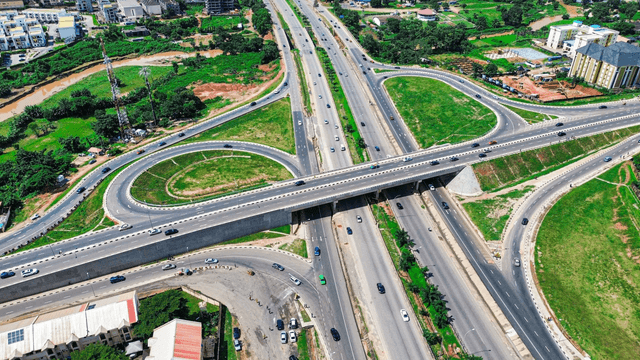



National anthem
Cultural Life
Cultural milieu
The cultural milieu of Nigeria is rich, diverse, and dynamic, reflecting the complex interplay of traditions, ethnicities, religions, history, and modernity. Nigeria, often referred to as the "Giant of Africa," is a true melting pot of cultures, with over 250 ethnic groups and more than 500 languages spoken across the country. This diversity is mirrored in its customs, art, music, dance, cuisine, festivals, and social practices.
Daily life and social customs
Nigeria's daily life and social customs are deeply influenced by its diverse ethnic groups, religions, and regional practices. Despite the differences in culture, Nigerians share many common social practices that shape daily life, from family dynamics to work habits, food customs, and social interactions. The key aspects of daily life and social customs in Nigeria include; Family and Social Structure, Religion and Spiritual Practices, Work and Professional Life, Social Interactions and Etiquette, Cuisine and Eating Habits, Festivals and Celebrations, Traditional Arts, Music, and Dance, Health and Well-being. The daily life and social customs of Nigerians reflect the diversity and richness of the country’s cultures. From the importance of family and respect for elders to the role of religion, food, and music in socializing, Nigeria’s customs emphasize community, hospitality, and tradition. While modern influences continue to shape the country, these deeply rooted social customs remain an essential part of the Nigerian identity.
Greetings are incredibly important in Nigerian culture, and they vary depending on the time of day, ethnicity, and social context. For example: In the Yoruba culture, a younger person is expected to kneel or bow to an elder as a sign of respect.
In the Hausa-Fulani culture, shaking hands is common, but men and women generally do not shake hands unless they are familiar with each other.
Among the Igbo, a handshake with a bow of the head or slight squat may be used as a sign of respect.
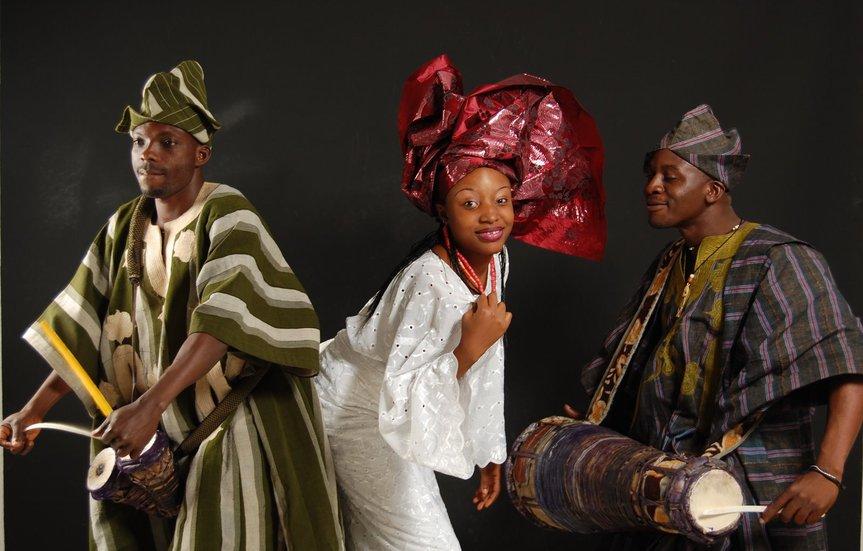
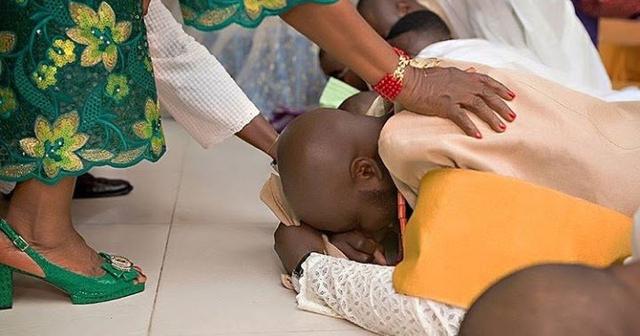



Cuisine
Nigerian cuisine is as diverse as its people and culture, with each of the country's ethnic groups contributing unique ingredients, dishes, and culinary techniques. The food is flavorful, rich in spices, and often uses fresh, local produce. The three main staple foods in Nigeria are rice, yams, and cassava, but the cuisine also includes a wide variety of meats, fish, and vegetables. Rice is a major staple in Nigeria, particularly in the western and southern parts. It is commonly cooked in a variety of ways. Nigerian soups are hearty, flavorful, and usually served with a starchy accompaniment like pounded yam, fufu, garri, or rice. These soups vary by region and ethnic group. Goat meat is one of the most common meats in Nigerian cuisine. It is often grilled, fried, or cooked in soups and stews. The rich flavor of goat meat is used in dishes like suya (spicy grilled meat) and pepper soup. Beef is widely consumed in Nigerian cuisine. It can be grilled, stewed, or boiled. Suya is one of the most popular ways of preparing beef, where the meat is marinated with spices and grilled on skewers. Chicken is another widely consumed meat, often served in stews or fried and served with rice or yam dishes. Fish is integral to the Nigerian diet, especially in the south and south-east, where it’s abundant. It’s often smoked, dried, or fresh. Fish is commonly added to soups or served in dishes like pepper soup or fish stew.




Music
Nigeria is home to one of the most vibrant and diverse music scenes in the world. Nigerian music spans a variety of genres, ranging from traditional and folk music to contemporary styles such as Afrobeat, Afropop, highlife, juju, and hip-hop. The country’s music reflects its rich cultural diversity, incorporating sounds, rhythms, and instruments from the numerous ethnic groups that make up the nation. Nigerian traditional music is deeply rooted in the culture and spirituality of its people. It has been used in rituals, celebrations, and storytelling, with each ethnic group contributing its unique sound. Afrobeat is arguably the most influential Nigerian music genre globally, thanks to pioneers like Fela Kuti. This genre combines traditional African rhythms with funk, jazz, and highlife. Juju music originated among the Yoruba people and is characterized by the use of talking drums, guitar, and keyboard. It is often accompanied by dance and praise singing. Nigerian hip-hop has seen exponential growth since the late 1990s, with both local and international influences shaping the scene. Gospel music is a significant part of Nigerian culture, and it blends traditional African rhythms with Christian themes. Nigerian gospel music is often celebrated in churches and is characterized by praise and worship songs. Popular Nigerian gospel artists include Sinach, Nathaniel Bassey, Tope Alabi, and Frank Edwards, who have contributed to the international success of African gospel music. The music of Nigeria is a dynamic reflection of the country’s diversity and cultural heritage. From traditional rhythms to modern genres like Afropop and Afrobeat, Nigerian music continues to have an enormous impact both locally and globally. The rise of artists like Burna Boy, Wizkid, and Tiwa Savage has brought Nigerian music to international prominence, making it a leading force in the global music industry. The country’s music scene remains a vibrant and ever-evolving celebration of its rich cultural traditions and creative spirit.

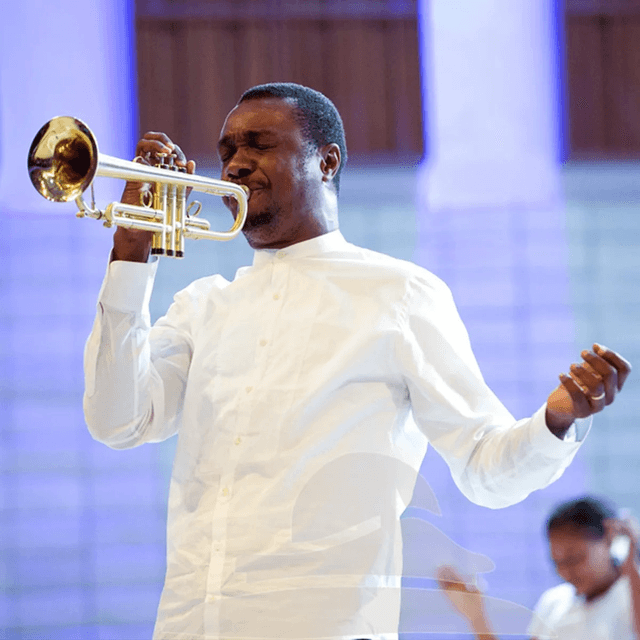


Talking Drums
Gospel Music
The arts
Nigeria, with its vast ethnic diversity and rich cultural heritage, has a vibrant and influential art scene that spans visual arts, literature, performance arts, and architecture. The country’s arts are deeply rooted in its various ethnic traditions, while also embracing modern influences. Nigerian art is a key vehicle for cultural expression, identity, and societal commentary. Traditional Nigerian art is created by different ethnic groups across the country, and each group has its own distinct styles and forms. The artworks often reflect cultural beliefs, social structures, rituals, and history.
Nigerian contemporary art has gained international acclaim for its fusion of traditional and modern techniques, addressing social issues, politics, and identity in post-colonial Africa. Many contemporary Nigerian artists have gained prominence through their exploration of abstract art, installation pieces, and figurative painting.
Nigerian literature has gained global prominence, with works exploring identity, culture, history, and post-colonial issues. Nigerian authors write in English and local languages, offering diverse perspectives on African life. Nigeria’s architecture is an intricate blend of traditional styles and modern designs, influenced by its various ethnic groups, colonial history, and contemporary trends. Nigerian fashion is known for its vibrant colors, intricate designs, and cultural symbolism. Aso Ebi is a popular tradition where friends and family wear matching clothes for weddings and social events.
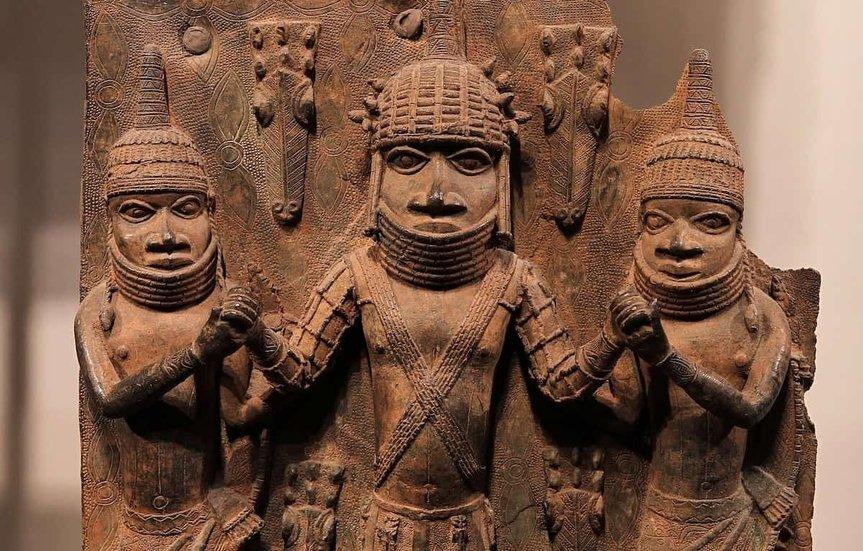
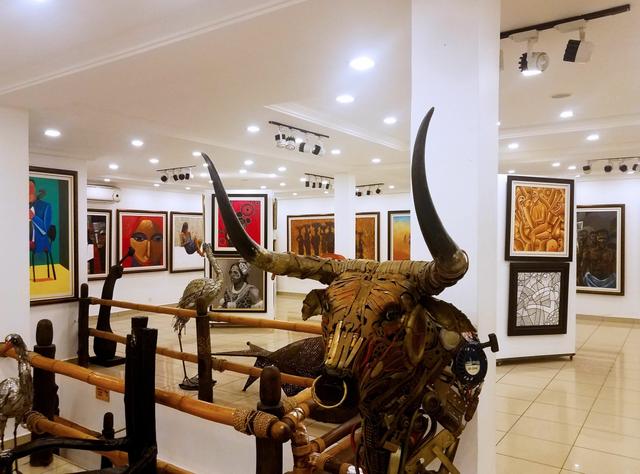
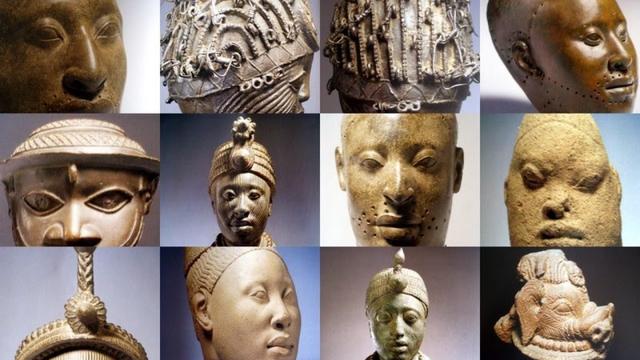


People
Ethnic groups
Nigeria is an incredibly diverse country, with over 250 ethnic groups and more than 500 languages spoken. The major ethnic groups in Nigeria are spread across the country, each with distinct cultures, languages, traditions, and histories. The ethnic diversity is one of the defining features of Nigeria, influencing everything from politics and religion to art and social customs. Nigeria’s ethnic diversity is a defining feature of its identity, with over 250 groups and numerous languages and cultures. These ethnic groups play a major role in shaping the country’s history, politics, and social dynamics, and they contribute to the richness and complexity of Nigerian society. Despite the vast differences among them, the various ethnic communities have found ways to coexist, and their shared experiences in a modern Nigeria continue to influence the country’s future.





Religion
Nigeria is one of the most religiously diverse countries in the world, with a rich mixture of Christianity, Islam, and traditional African religions. Religion plays a central role in the everyday lives of Nigerians, influencing everything from politics and social life to culture and customs. While the two dominant religions are Islam and Christianity, there is still a significant presence of traditional beliefs practiced by many ethnic groups. Islam is the dominant religion in the North and North-East. It was introduced into the region during the 11th century, initially through Arab traders and later expanded by Jihadists in the 19th century (specifically the Sokoto Caliphate). Islam in Nigeria is largely Sunni, with a small percentage of Shi'a Muslims, particularly in the Zaria area and parts of the North-East. Christianity is dominant in the South and South-East regions, particularly in Lagos, Port Harcourt, and Abuja, as well as parts of the Middle-Belt. Religion in Nigeria is a fundamental aspect of its cultural, social, and political identity. With Islam and Christianity being the dominant religions, there is also a significant presence of traditional African religions(5 -10% of the population), which are deeply ingrained in the cultural life of many Nigerian ethnic groups. The religious landscape of Nigeria continues to evolve, with religious diversity contributing to both the nation's strength and its challenges. Despite occasional tensions, Nigeria remains a country where people practice their religions freely, and faith plays a central role in the lives of the majority of Nigerians.
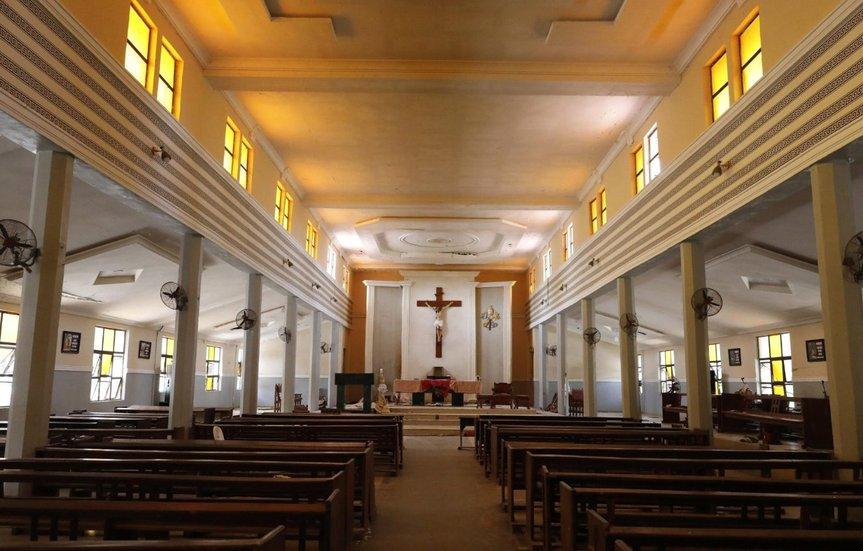
Settlement patterns
Nigeria's settlement patterns are influenced by a variety of factors, including geography, climate, ethnic groups, economic activities, historical events, and cultural practices. Over time, the country has developed a complex system of urban, rural, and semi-urban settlements, which vary significantly in size, function, and structure. Urbanization in Nigeria has accelerated rapidly, particularly since the post-independence era. With increasing rural-urban migration driven by economic opportunities, better education, and modern infrastructure, Nigerian cities have seen substantial growth.
Urban settlements are characterized by high population densities, diverse communities, and a concentration of economic activities such as commerce, industry, education, and government services. Rural settlements are typically smaller and more spread out compared to urban centers. They are often agriculture-based, with people living close to their sources of livelihood.
The majority of Nigeria’s population still resides in rural areas, though urban migration has reduced this number over time.
Rural settlements are characterized by scattered and sparse populations, with villages and hamlets providing the basic residential structures. Semi-urban settlements, often referred to as peri-urban areas, exist in the transitional zone between rural and urban areas. These settlements are typically growing urban centers or suburbs of large cities.
In these areas, people may still practice agriculture but also engage in small-scale businesses and services, reflecting the growing impact of urbanization. Nigeria's settlement patterns are a reflection of the country's diverse geography, culture, and history. From dense urban areas like Lagos to scattered rural villages in the North-East, and pastoral nomadic settlements in the Sahelian zones, the country displays a wide range of living conditions. Urban migration and population growth continue to shape the development of new semi-urban settlements, while coastal, mountainous, and traditional communities maintain their unique ways of life. Each settlement pattern plays a vital role in Nigeria’s economic, cultural, and social development.
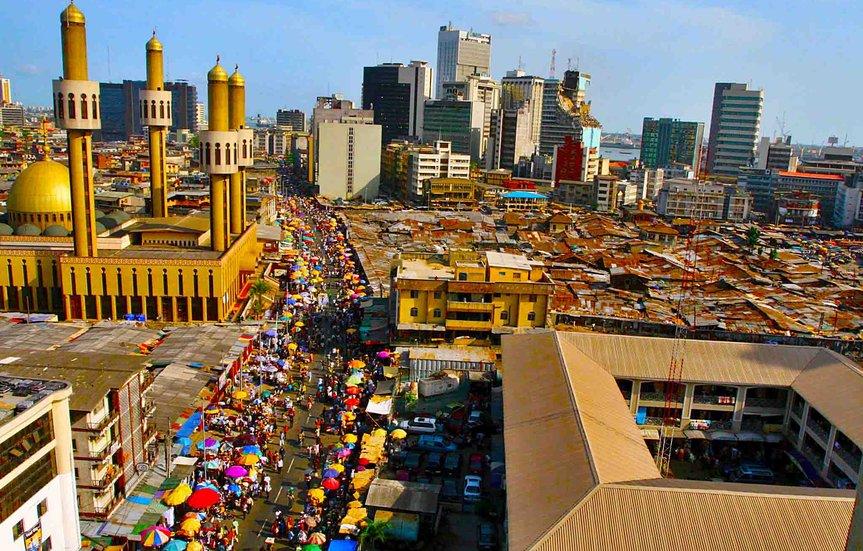
In Nigeria, rural settlements are characterized by low population density, agriculture as the primary economic activity, and a dependence on natural resources. While about half the population still lives in rural areas, a significant shift towards urban areas is underway. Rural settlements vary in structure, from densely populated areas along the coast and in the north, to dispersed homesteads in the southeast and central regions.
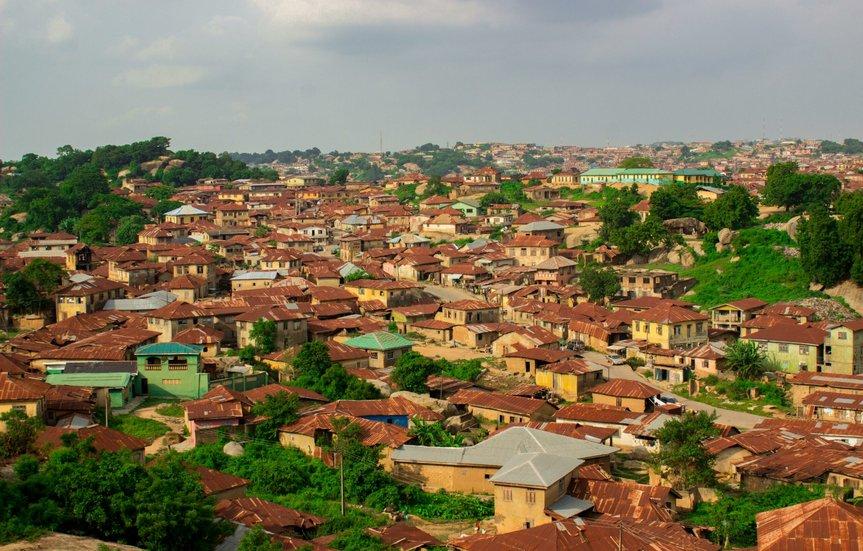
Semi-urban settlements are areas that exhibit characteristics of both urban and rural environments, serving as a transitional zone between the two. They are characterized by a mix of residential, commercial, and industrial land uses, with a population density and infrastructure levels that fall between those of a fully urban city and a rural village. These settlements often develop organically, sometimes around a specific resource or activity, and can be influenced by factors like migration, economic opportunities, or planned development.
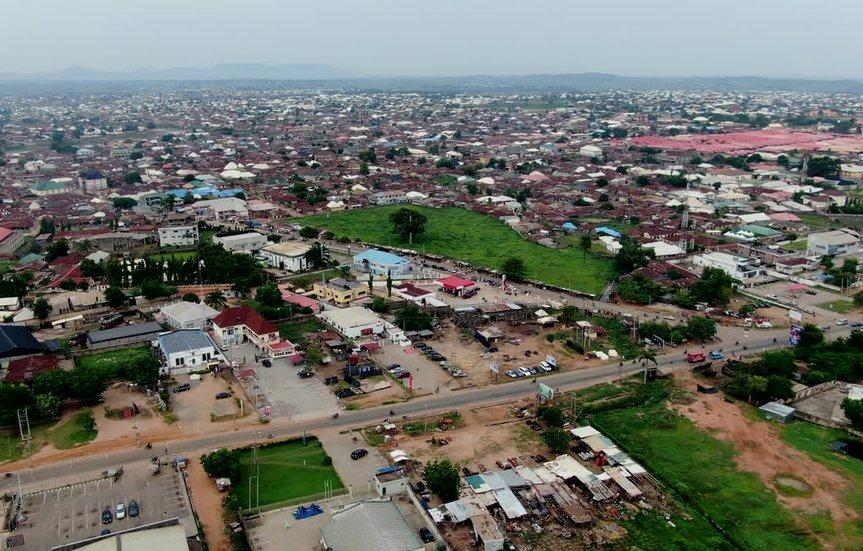
Urban settlement
Nigeria has a rapidly growing urban population, with over half of its citizens now living in urban areas. This urban expansion is driven by factors like natural population increase, migration from rural areas seeking better opportunities, and the establishment of new urban centers. However, this growth also presents challenges, including strain on infrastructure, housing deficits, and socioeconomic disparities.


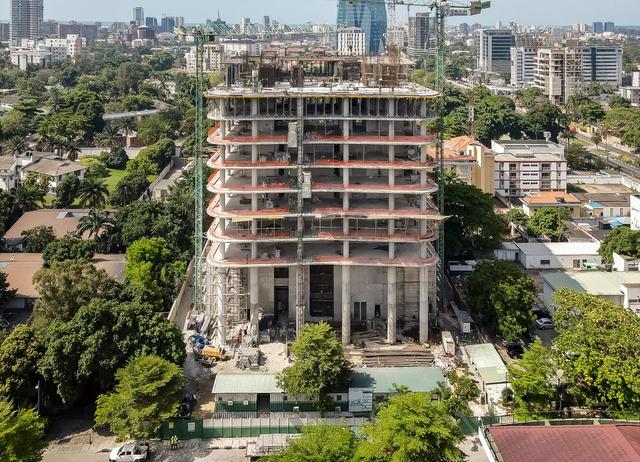
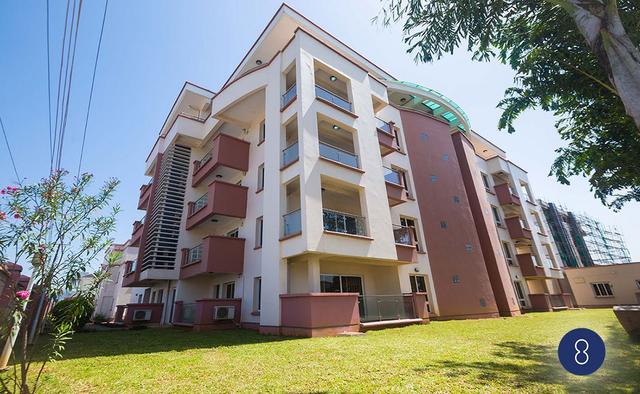
Demographic trends
Nigeria, with its rapidly growing population, is experiencing a series of demographic shifts influenced by factors such as fertility rates, life expectancy, migration patterns, and urbanization. The country’s demographic trends have significant implications for its social structures, economic development, and policy planning. Nigeria is the most populous country in Africa and the seventh most populous country in the world, with a population of over 220 million people as of 2023. The country has seen rapid population growth in the past few decades. Nigeria’s demographic trends present both opportunities and challenges. On one hand, the youthful population provides a large labor force that could drive future economic growth. On the other hand, issues like high fertility rates, urbanization, unemployment, and healthcare disparities will require strategic investments in education, infrastructure, healthcare, and job creation to ensure sustainable development. Proper management of Nigeria's demographic growth, along with policies that address these trends, will be key to shaping the country's future.

Touristic Cities
Lagos
Lagos, Nigeria’s largest city, sprawls inland from the Gulf of Guinea across Lagos Lagoon. Victoria Island, the financial center of the metropolis, is known for its beach resorts, boutiques and nightlife. To the north, Lagos Island is home to the National Museum Lagos, displaying cultural artifacts and craftworks. Nearby is Freedom Park, once a colonial-era prison and now a major venue for concerts and public events.

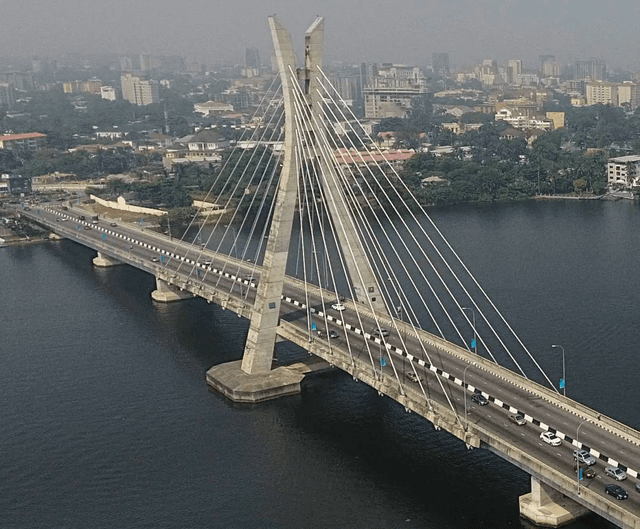

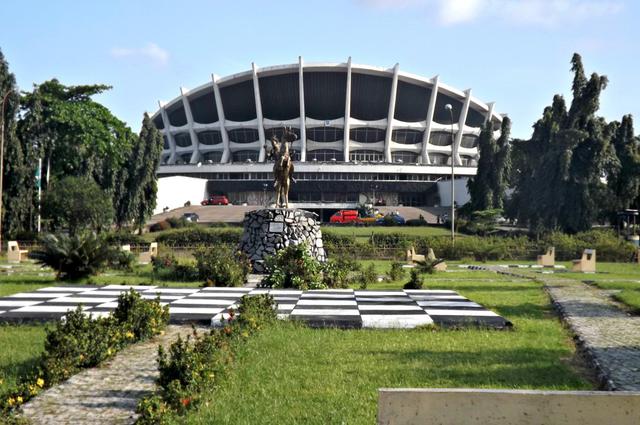
Abuja
Abuja is the capital city of Nigeria, located in the center of the country within the Federal Capital Territory (FCT). It was purpose-built as the nation's capital in 1991, replacing Lagos. Abuja is known for its modern infrastructure, including the iconic Aso Rock, and is a major political and administrative center. Abuja is known for its planned infrastructure, clean environment, and monumental attractions like the national mosque, National Christian Centre, Millenium park, among others.
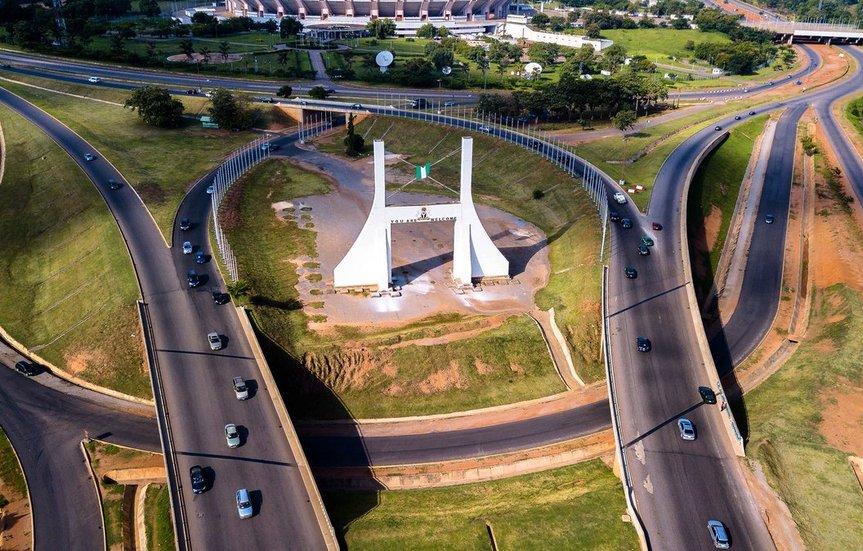




Kano City
Kano is one of the 36 states of Nigeria, located in the northern region of the country. One of the oldest cities in Nigeria, Kano is a center of culture, history, and commerce, known for its ancient walls, traditional markets, and Islamic heritage.
Attractions include; Kano City Walls, Kano Emir's Palace , Gidan Makama Museum, Kano Central Mosque, and Dala Hill.
Calabar
Calabar is a major port city and the capital of Cross River State in southeastern Nigeria. It's known for its historical significance as a major slave trade port,rich cultural festivals, colonial architecture, and beautiful natural surroundings and its more recent development as a tourism destination
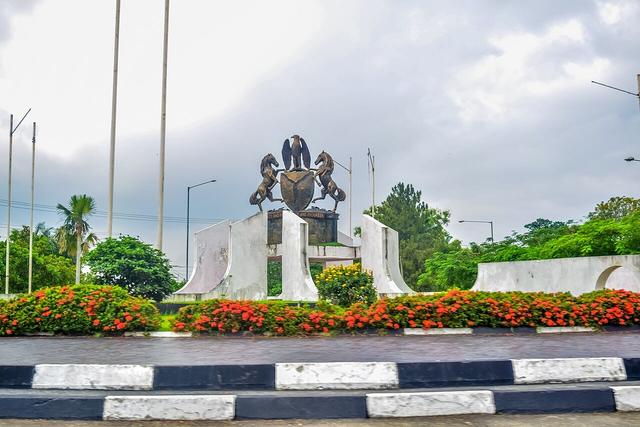



Port Harcourt
Port Harcourt is the capital and largest city of Rivers State in Nigeria. It is the fifth most populous city in Nigeria after Lagos, Kano, Ibadan and Benin. It lies along the Bonny River and is located in the oil rich Niger Delta region. As of 2023, Port Harcourt's urban population is approximately
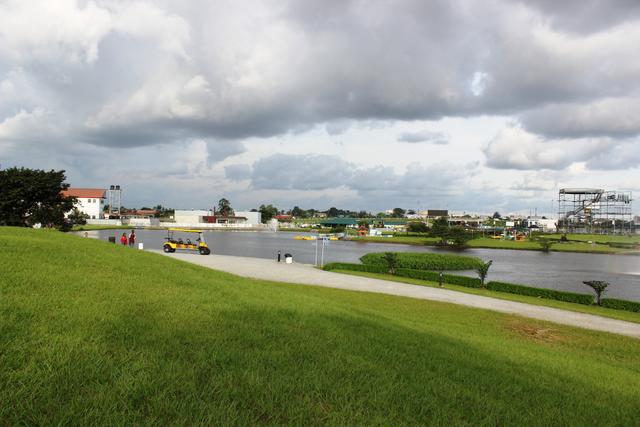


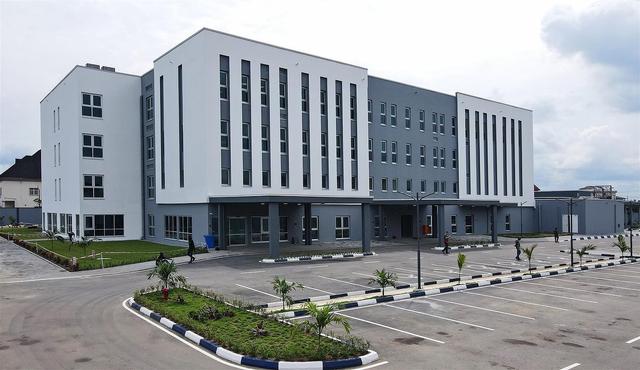
Ibadan
Ibadan is the capital and most populous city of Oyo State, in Nigeria. It is the Eight largest city by population in Nigeria after Lagos. Historically significant as the seat of the Oyo Empire, Ibadan is rich in cultural heritage, ancient landmarks, and modern growth. It serves as a key educational, cultural, and commercial hub in Nigeria. Attractions in Ibadan include; University of Ibadan, National Museum of Unity, Bower’s Tower, Ibadan National Library, Agodi Gardens, Ijaye Battle Site, Oyo National Park. Ibadan is home to the National Museum of Unity, which showcases Nigeria's diverse cultural heritage and emphasizes national cohesion through exhibits that represent various ethnic groups and historical artifacts. While there isn't a widely known "Museum of Waste" in Ibadan, the city and other places around Nigeria have seen initiatives using waste materials for artistic and educational purposes, raising awareness about environmental sustainability and recycling. The National Museum of Unity stands as a key cultural site in Ibadan, promoting the importance of unity within the country’s diversity.
Accomodation
Guest houses
Guest houses in Nigeria provide affordable, intimate accommodation options, often offering a more personalized experience than larger hotels. These establishments can be found in major cities like Lagos, Abuja, Port Harcourt, and Kaduna, as well as in tourist destinations. They typically offer basic amenities such as clean rooms, private bathrooms, Wi-Fi, and sometimes breakfast services, all at more budget-friendly rates. Many guest houses are family-run, creating a homelike atmosphere with attentive service, making them ideal for travelers seeking comfort, privacy, and convenience. Popular guest houses in cities like Lagos and Abuja include The Westwood Hotel and Kollington Suites, which are known for their welcoming environments and great value for money.

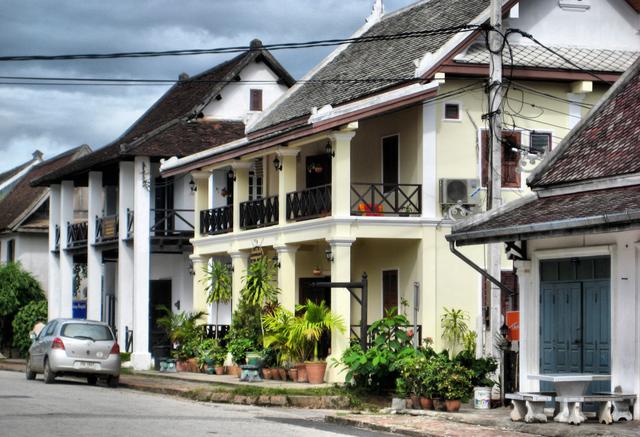
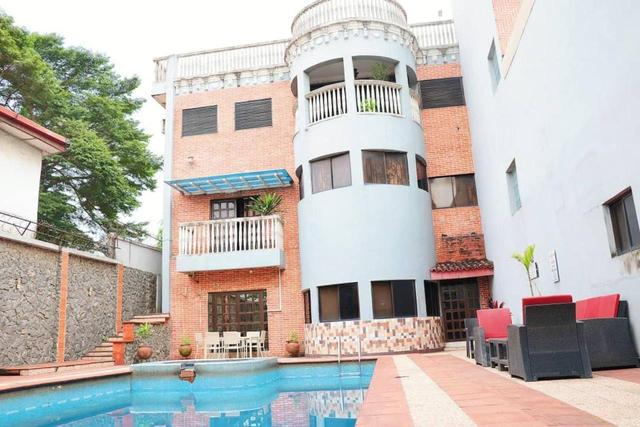

Hotels and resorts
Hotels and resorts in Nigeria offer a wide range of accommodation options, from luxury to more budget-friendly choices, catering to both business and leisure travelers. In major cities like Lagos, Abuja, Port Harcourt, and Calabar, you’ll find a variety of high-end hotels and resorts with modern amenities such as pools, spas, fine dining, and conference facilities. Luxury hotels like the Eko Hotel & Suites and Transcorp Hilton Abuja offer world-class services, while more affordable options like The Wheatbaker in Lagos provide great comfort without breaking the bank. Nigeria’s coastal and tourist areas also boast stunning resorts, like Obudu Mountain Resort in Cross River, which is known for its beautiful landscapes and outdoor activities, and La Campagne Tropicana in Lagos, offering a blend of African and international luxury. Whether you’re looking for a beachside escape, a business hub, or a relaxing retreat, Nigeria’s hotels and resorts provide diverse and high-quality options for every type of traveler.



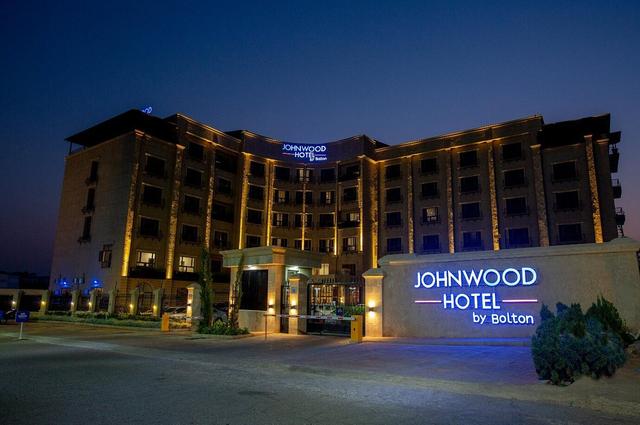
Riads
In Nigeria, riads are not as commonly found as they are in North Africa, particularly in Morocco. However, the concept of riads—traditional homes with interior courtyards—can sometimes be seen in some boutique hotels and cultural accommodations, especially in areas with a strong influence of Islamic and traditional African architecture. These types of accommodations are typically located in more culturally rich areas, such as Lagos, Abuja, and Kano, where there is a fusion of local African and Arab designs.
Although the term "riad" may not be widely used, some luxury and boutique accommodations feature courtyard-style layouts, intricate designs, and African-influenced architecture. These may not be as prevalent in the hotel market as in Morocco, but travelers seeking a more culturally rich and intimate experience may find a few gems offering a similar atmosphere. Some boutique hotels in urban areas and resorts near historical or cultural sites may incorporate traditional design elements inspired by the riad concept.
For example, while not exactly a "riad," places like The Maison De Vie in Lagos might offer a similar intimate experience with unique African-inspired decor and open-air courtyards.
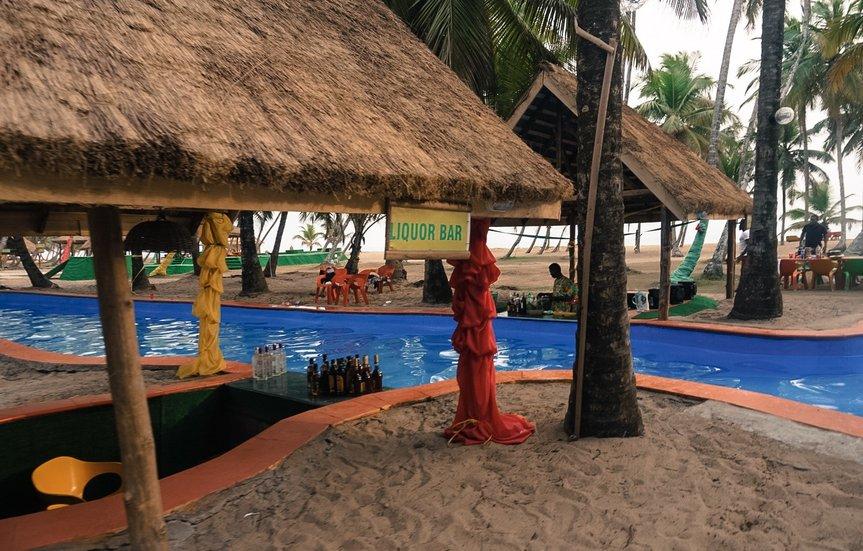
Campings
Camping in Nigeria is an adventure that allows you to connect with nature and experience the country's diverse landscapes, though it's not as widely practiced as in some other countries. Several locations offer unique camping experiences, from beaches to mountains, with varying degrees of accessibility and amenities.




Requirements for Visa
Documents to be submitted for your application
- Visa Application Form.
- Passport valid for at least 6 months beyond your planned date of entry into Nigeria and should have at least two blank pages.
- 2 recent passport-sized photographs (usually 2"x2", with a white background). These should meet the specifications outlined by the Nigerian consulate.
- Visa Fee Payment Receipt which varies based on the type of visa and your nationality. The payment is typically made online.
- Flight Itinerary
- Hotel Reservation/Accommodation Details
- Travel Insurance (sometimes required)
- Proof of Sufficient Funds
- Letter of Invitation (if applicable)
- Business Documents (for business visa)
At the time of visa issuance, please provide the following documents
- Original Passport
- Visa Approval Notice
- Visa Payment Receipt
- Visa Application Form Confirmation Page
- Passport-Sized Photographs
- Flight Itinerary
- Hotel Reservation or Proof of Accommodation
- Yellow Fever Vaccination Certificate
- Invitation Letter (if applicable)
- Health and Travel Insurance
- Supporting Documents for Specific Visa Types
- Proof of Sufficient Funds
- Other Documents Based on Visa Type
Useful links
- Nigeria Immigration Service (NIS)
- Visa Application Portal
- Visa Fees and Requirements
- World Health Organization (WHO) Yellow Fever Info
- Center for Disease Control (CDC) - Travel Health Information for Nigeria
- Nigerian Embassies
Economy of Nigeria
Agriculture, forestry, and fishing
Agriculture is one of Nigeria's most important sectors, both historically and currently. It is the largest sector in terms of employment, providing livelihoods for about 35% to 40% of the population. Forestry plays an important but underdeveloped role in Nigeria’s economy. The country has rich forest resources, particularly in the South-South and South-Western regions. Fishing is an essential industry in Nigeria, providing food, employment, and export products. Nigeria's extensive coastlines, inland rivers, and lakes support a variety of fish species. The National Fisheries and Aquaculture Policy (NFAP) is designed to ensure the development of the fishing industry, encourage sustainable fishing practices, and improve the livelihoods of people engaged in fishing.
Various aquaculture programs aim to reduce dependence on imported fish by boosting domestic fish farming. Agriculture, forestry, and fishing sectors remain fundamental to Nigeria’s economy and food security. However, these sectors face significant challenges such as climate change, infrastructure gaps, and unsustainable practices.
The Nigerian government has initiated various policies and programs to address these challenges and improve productivity.
By adopting more sustainable practices, modernizing infrastructure, and enhancing investments in technology and research, these sectors can contribute even more significantly to the country’s economic development and job creation.
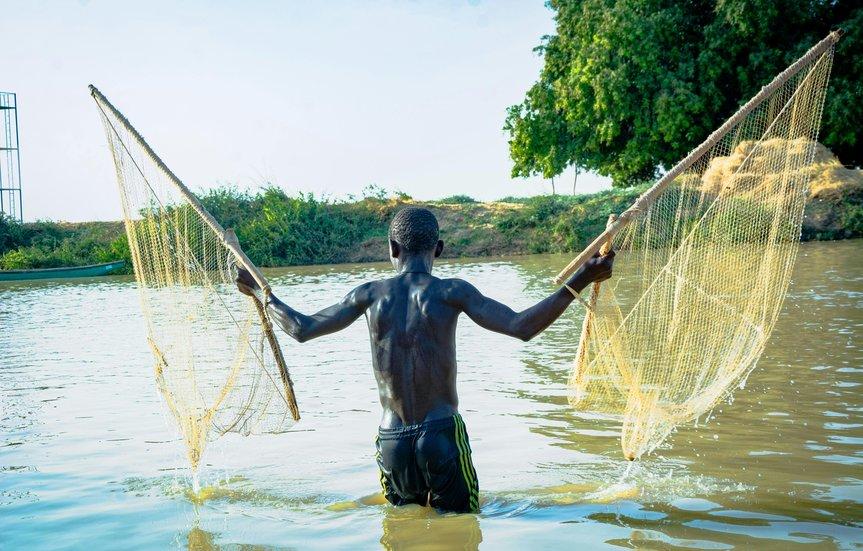
Resources and power
Nigeria's resources and power sector is vital to its economic development and global positioning, especially as Africa’s largest economy. The country is endowed with abundant natural resources, including oil, gas, minerals, and renewable energy resources, while its power sector has significant potential but faces challenges in meeting demand. Nigeria is one of the world's leading producers of oil, with an estimated 37 billion barrels of proven oil reserves. Oil contributes around 10% to GDP and over 80% of export earnings. Nigeria’s power sector is critical for economic development but has struggled with significant challenges. Despite being Africa's largest oil and gas producer, the country faces frequent power outages, inefficient electricity distribution, and a lack of access to power for millions of Nigerians. Key Sources of Power Generation are Thermal Power, Hydropower, and Renewable Energy. While Nigeria is blessed with vast natural resources, including oil, gas, and renewable energy potential, its power sector faces significant challenges in meeting the growing energy demand. Government policies and reforms, coupled with investments in renewable energy, modernizing infrastructure, and improving energy access, are key to unlocking the country’s full energy potential.
Manufacturing
Nigeria's manufacturing sector is a vital part of the economy, contributing significantly to the GDP and employment. The sector encompasses a variety of industries, with cement, food and beverages, and textiles being prominent. Despite growth, the sector faces challenges such as inadequate infrastructure, limited access to financing, and policy inconsistencies. The manufacturing sector in Nigeria contributes about 10% to 12% of the Gross Domestic Product (GDP). While this share is relatively small compared to other sectors like agriculture and oil, it holds significant potential for growth and job creation. Nigeria’s manufacturing sector consists of various sub-sectors, each with unique characteristics and challenges. Some of the prominent subsectors include Agro-Processing , Textile and Apparel,
Chemical and Pharmaceutical Manufacturing, Automobile Manufacturing, Oil and Gas Equipment Manufacturing, Cement and Building Materials.Nigeria is one of the largest producers of cement in Africa, driven by rapid urbanization and the country’s large infrastructure needs.

Finance
The financial sector in Nigeria is one of the most vital components of the country's economy, supporting various sectors like manufacturing, agriculture, services, and infrastructure development. Nigeria's financial system includes banks, insurance companies, capital markets, and microfinance institutions, and is regulated by several key financial institutions. However, it also faces challenges that need addressing to enhance its stability, accessibility, and growth.
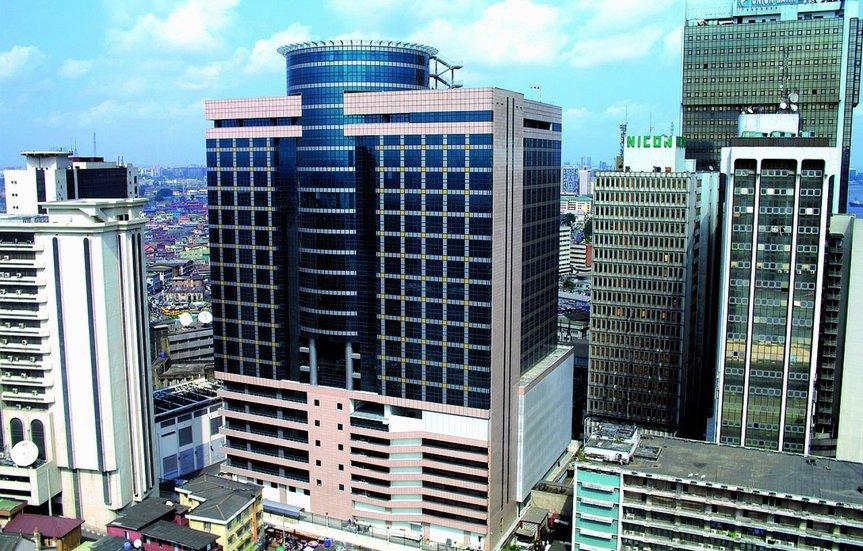
Trade
Nigeria's trade sector is crucial to its economy, with both imports and exports playing an important role in its development. As Africa’s largest economy, Nigeria is a key player in regional and global trade, especially due to its vast natural resources, such as oil and gas, and its diversified agricultural and manufacturing outputs. Despite its significance, Nigeria’s trade sector faces numerous challenges, ranging from infrastructural gaps to policy inconsistencies, but also has substantial opportunities to enhance its global competitiveness. Nigeria’s exports are dominated by oil and gas, which account for over 90% of total exports. Other major export items include agricultural products, solid minerals, and manufactured goods.
Nigeria imports a variety of goods, including refined petroleum products, machinery, vehicles, chemicals, food items, and consumer goods. The country imports refined petroleum products because domestic refining capacity is limited, and the demand for refined products far exceeds local production.
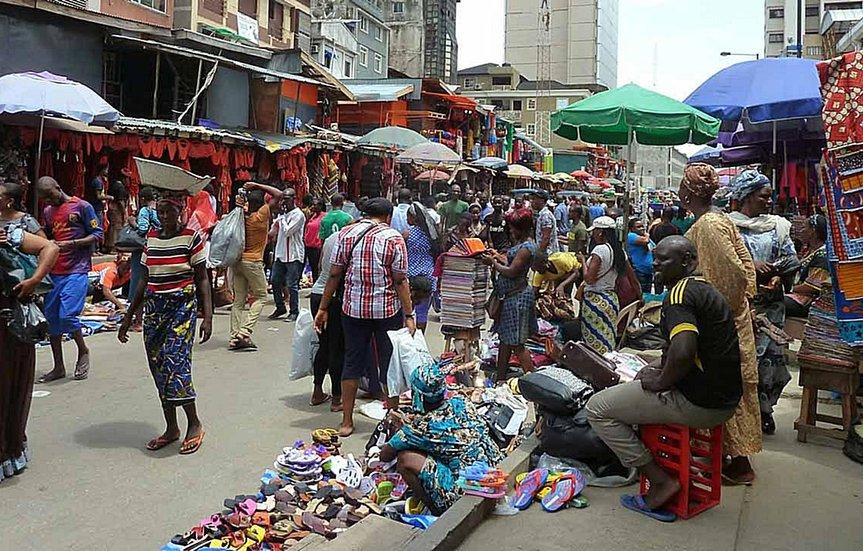
Labour and taxation
The labour and taxation systems in Nigeria are critical components of its economic structure. These systems are intertwined with the government’s ability to fund public services, attract investment, and support sustainable economic development. However, both labour conditions and the tax system face significant challenges, while also presenting opportunities for reform and growth. Nigeria has a large and youthful labour force. With a population of over 200 million, about 60% of Nigerians are under the age of 25. This represents a significant portion of the population that is either in school or entering the workforce.
Despite having a large workforce, Nigeria faces significant unemployment and underemployment. The unemployment rate in Nigeria has been fluctuating but was estimated to be 33.3% in 2021, while underemployment remains high at around 22%. Informal Labour Market: A large portion of Nigeria’s workforce is employed in the informal sector. Estimates suggest that up to 70% of employment in Nigeria is informal, with workers in agriculture, small-scale businesses, and street vending forming a large part of this sector. The formal sector includes employment in public services, private companies, and industries. Key formal employers include government agencies, oil and gas companies, manufacturers, and financial institutions.
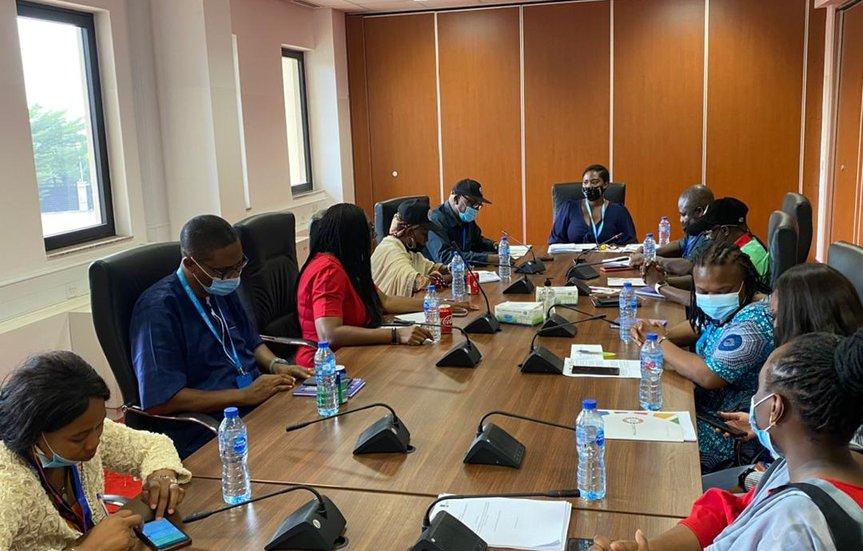
Transportation and telecommunications
Nigeria's transportation and telecommunications sectors are vital for its economic growth and development. The transportation sector, particularly road transport, handles the bulk of passenger and freight traffic, while the telecommunications sector is experiencing significant growth, driven by mobile technologies and increasing internet penetration. Nigeria's transportation system is vital for facilitating the movement of goods and people within the country and to international markets. However, the sector faces several issues, including poor infrastructure, overcrowded urban areas, and insufficient funding for large-scale development projects. Road transport is the most widely used mode of transportation in Nigeria. The country has an extensive network of highways, local roads, and rural roads connecting different regions. Rail transport in Nigeria has a long history but has largely been underdeveloped. However, the government has made strides in revitalizing the rail network in recent years. Nigeria has several international and domestic airports that connect the country to the rest of the world. Nigeria has several key seaports, with the Lagos Ports (Apapa and Tin Can Island) being the busiest. Nigeria's telecommunications sector has seen significant growth, especially in the last two decades, making it one of the most dynamic sectors in the economy. The country has one of the largest mobile phone markets in the world, with millions of Nigerians using mobile phones for voice, data, and financial transactions. Nigeria’s telecommunications sector is dominated by mobile telecommunications, with a rapidly expanding mobile phone penetration rate. While urban areas like Lagos, Abuja, and Port Harcourt are well-connected, rural areas often face issues with poor network coverage and internet connectivity.
Data costs are also a significant barrier for many Nigerians, despite the increasing availability of mobile internet services. Mobile money services are gaining ground, particularly with the Central Bank of Nigeria (CBN) launching initiatives to promote financial inclusion. Mobile operators are increasingly offering financial services like mobile banking, payment systems, and microloans.
